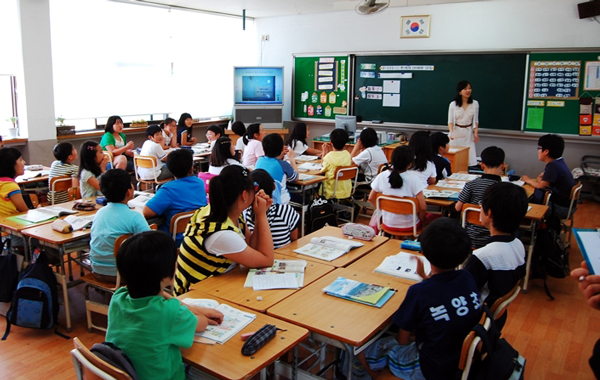- City Fajr Shuruq Duhr Asr Magrib Isha
- Dubai 04:33 05:50 12:21 15:48 18:46 20:03

Picture used for illustrative purpose only. (AGENCIES)
Asian teachers in the UAE want an increase in the cap on minimum wages by at least 150 per cent.
Currently, most teachers in schools with Indian curricula earn less than Dh2,500 – just above the UAE Ministry of Education's minimum wage cap of Dh2,000.
This follows recent amendments to labour laws by the MInistry of Labour, which states degree holders must be paid a minimum Dh12,000 per month for a company to be classified under Category 1.
Many teachers who spoke to Emirates 24|7, on condition of anonymity, say they hope the Ministry of Education follows the Labour Ministry and revise the minimum wage level taking into consideration teachers' qualifications.
Some of them said their salaries have not been raised for more than three years and it is high time the ministry increased it to at least a minimum Dh5,000.
“I have been working here for almost three years for a meagre Dh2,200 per month. The school even rejected to take my Master's degree certificate and instead applied for a labour contract with just my Bachelor's degree. I leave home at 6am and return only at 2pm. When there is a function at school I decorate the classroom and the school walls and am even forced to cook meals for about 35 people once or twice a month..." said one Indian teacher working with a prominent Indian school in Sharjah.
“By setting a cap at just Dh2,000 the Ministry of Education is in a way communicating that it is acceptable to pay so little to teachers. A carpenter, or a security guard is paid more compared to what some teachers at Indian and Pakistani schools earn,” said another teacher working in an Indian-managed school in Al Barsha in Dubai.
Identifying an apparent reason to the continual low salaries, one of the teachers, who has more than six years teaching experience in the UAE, said: "Usually Asian teachers come to the UAE after marriage and are willing to take up a job for an salary on offer. And the schools take advantage of this. You cannot blame a school if a person is willing to work for as little as Dh2,000."
The disparity in pay is ridiculous, said some, citing examples of teachers of other curricula. “My colleague's wife who is from UK and works as a teacher in a British curriculum school is paid Dh14,500 apart from housing allowance," said one Asian-school teacher.
A recent advertisement on a Canadian portal calls for teachers who are native English speakers. It said, interviews are being conducted for about 200 Licenced Teachers (Student Level High School Year 10-12), 300 Female Licenced Kindergarten Teachers and 400 Licenced Primary (Grades 1 - 5) Teachers for Abu Dhabi Education Council, Public Schools in Abu Dhabi, Al Ain and Al Ghabria.
"Applications are invited from native English speakers with minimum Bachelor's Degree. Compensation Package includes Dh12,300 to Dh20,400 per month depending on experience and credentials, apart from private family housing, furnished or furniture allowance," it said.
No mandate for KHDA on teachers' salaries
Dubai's Knowledge and Human Development Authority (KHDA), which regulates private schools in the emirate yesterday left it to school managements to decide teachers' pay scales.
“Teacher’s pay and other conditions of work are a matter of a contractual agreement between schools and teachers. KHDA oversees the quality of educational provision in Dubai but does not oversee or administer the contractual agreements between schools and their staff,” a statement issued by KHDA said.
It said it has not got the mandate to delve into teachers’ salaries.
When asked to comment on the “ridiculously low” wages which some teachers in the Indian and Pakistani schools are paid, Abdulla Al Karam, Chairman and Director General at the KHDA told Emirates 24|7 that non-performance of teaching staff due to low salaries could however reflect in the rankings, each school receives.
“It is affects their performance, it would definitely reflect in a drop in the school’s grading and thereby reflect in our reports,” he said.
He was speaking after releasing the annual inspection reports of 21 Indian and three Pakistani schools in 2010-2011. Incidentally none of the schools have managed to get themselves an “outstanding” rating - the highest among the four grading.
Also See:
Salary hikes of up to 7.5% in 2011: Mercer

Salaries in UAE to rise by 6% this year

![]() Follow Emirates 24|7 on Google News.
Follow Emirates 24|7 on Google News.